If I were thinking of an issue that would get Berliners up in arms, it wouldn't be a bunch of coffee shops. It would be Berlin's rental crisis, cuts to arts and culture, the 3.2 km extension of the Berlin Autobahn at a cost of over €720 million, or the police assaulting people protesting Israel's genocide in Gaza.
LAP Coffee (short for Life Among People), founded in Berlin in 2023, has quickly made waves with its stripped-down, highly automated approach to speciality coffee service, stirring debate across the city's café scene. In less than two years, the company has opened 15 locations in Berlin and four in Munich, and is hiring for its launch soon in Hamburg.
Its rapid expansion, backed by venture capital funding, has drawn strong criticism from some journalists and locals.
At the heart of the backlash? It's complicated, but it largely boils down to the fact that a couple of VC-backed migrant entrepreneurs built a fast-scaling coffee brand that offers cheaper, higher-quality coffee than you'll find at McDonald's or Starbucks in urban neighbourhoods — and more, and built a community.
I spoke to CEO and co-founder Ralph Hage to learn more about the controversy and why LAP fills a gap in Berlin's cafe culture.
Confessions of a Melbourne coffee snob
Before I get into a deep dive into LAP, I should put my bias upfront and centre. I am from Melbourne, Australia, which means I am a terrible coffee snob.
I'm currently drinking homemade cold brew made with a gadget from Japan, accompanied by a dash of milk and large ice blocks.
I've lived in Berlin for almost a decade, and when I moved here, I was stunned by the poor local coffee offerings — mostly bakeries selling burnt, bitter coffee from machines alongside sweaty meat and salad rolls and factory-baked pastries and bread housed in glass cabinets full of wasps. God forbid you asked for iced drinks, and you could only pay cash.
There were — and are — of course plenty of cafés, but they are usually crowded, and many don't open until 10 am or later.
I drink LAP coffee.
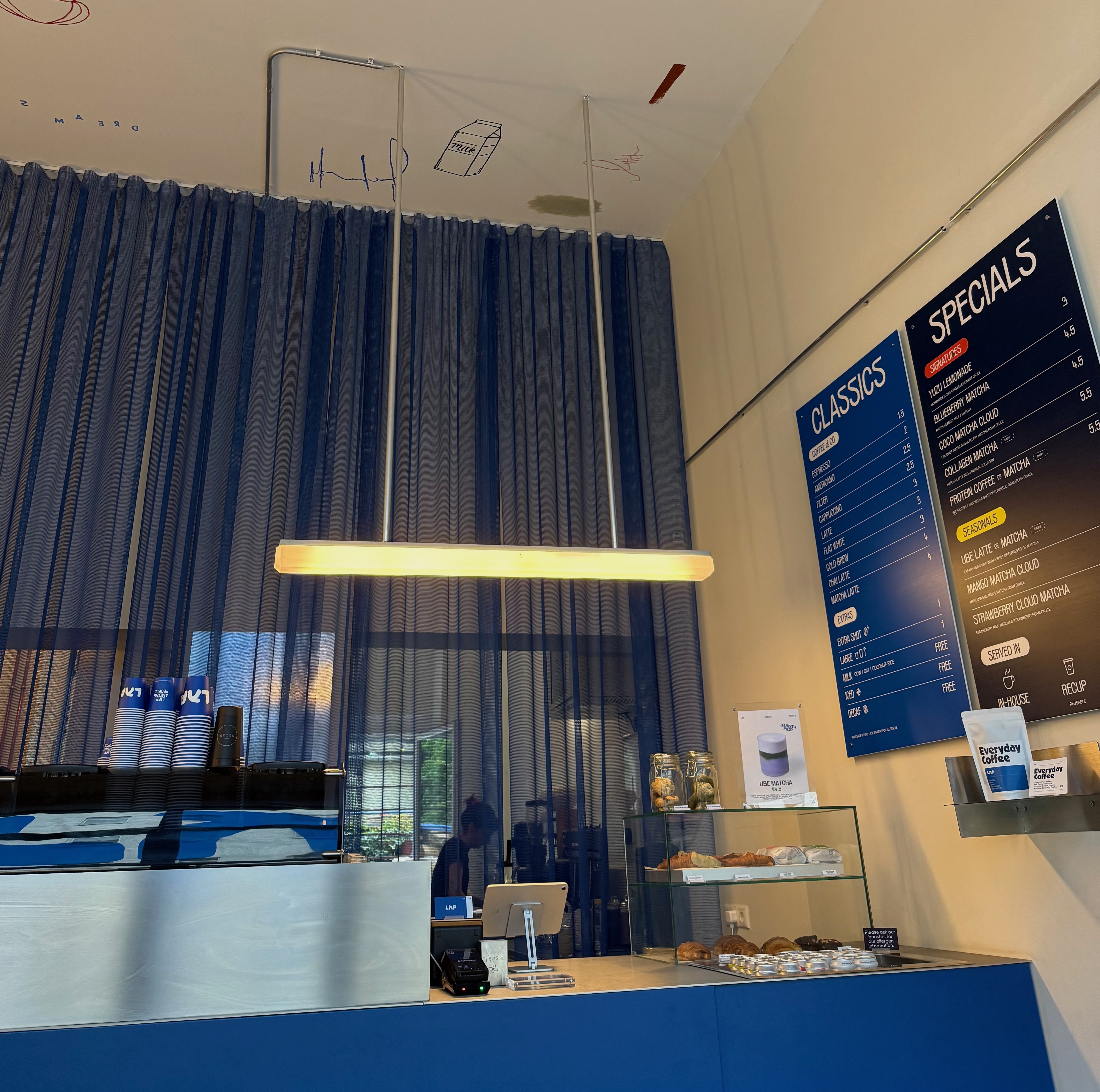
LAP is a café community that aims to provide decent coffee at an affordable price on the move. It aims to disrupt the market held by McDonald's McCafe, as well as the aforementioned bakeries and spätis (convenience stores).
LAP's microstores target people seeking a to-go coffee, and it's cheap: an espresso costs €1.50, an Americano €2, and a latte €3. Alternative milks and ice are FREE. It also offers speciality drinks flavoured with matcha and yuzu and a selection of health-focused drinks that contain ingredients like collagen, protein, and mushroom extract. It uses coffee roasted by Berlin's 19 grams (I also buy their beans to use at home).
Why two entrepreneurs think Germany deserves better coffee
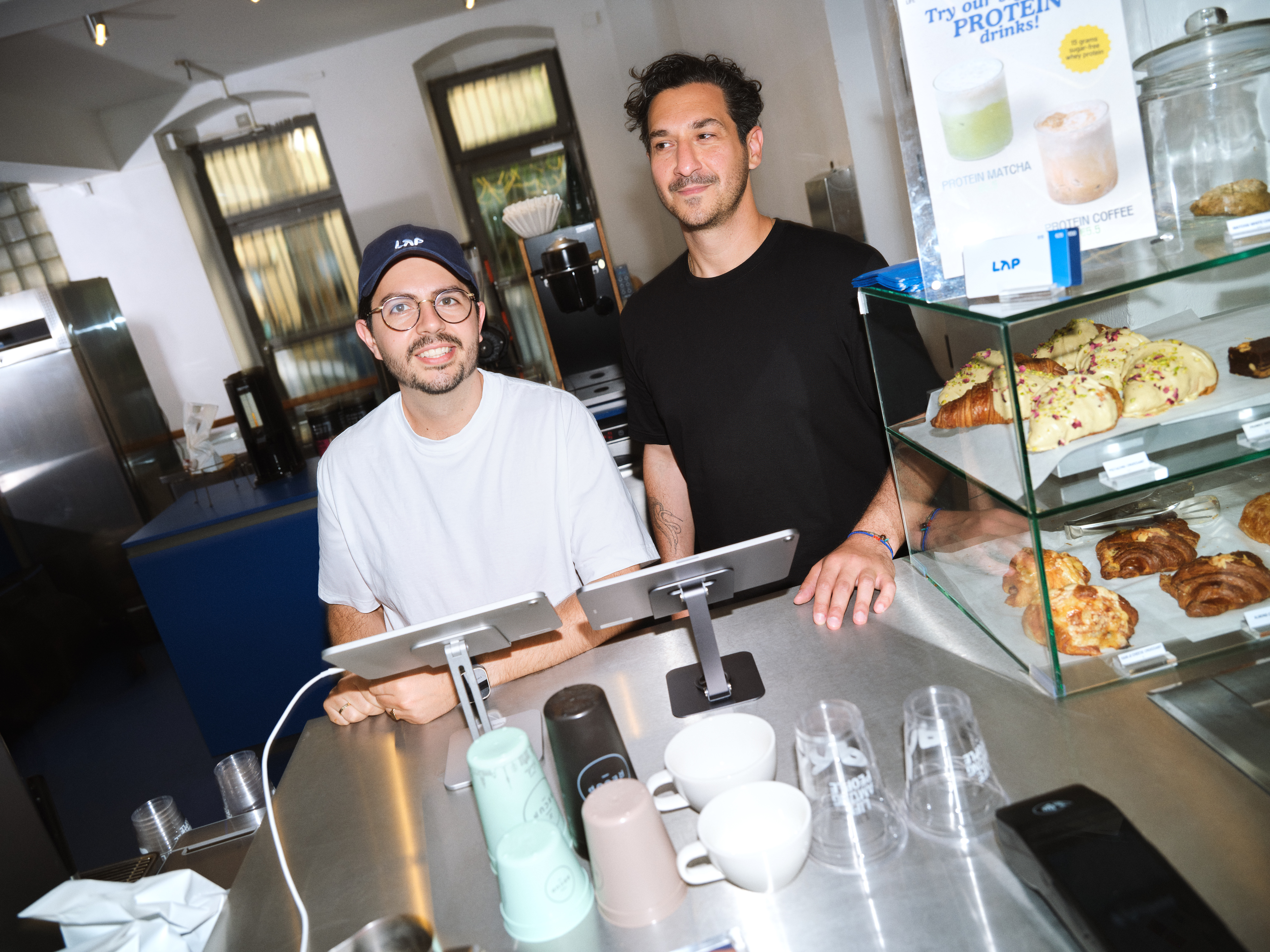
LAP was founded by Ralph Hage and Tonalli Arreola in 2022. Ralph Hage is a seasoned entrepreneur with a background in operations, finance, strategy, and brand development. Prior to LAP Coffee, he founded Yababa, a Berlin-based online grocery delivery startup focused on delivering speciality Turkish and Arabic groceries — otherwise hard to find through mainstream channels — directly to customers.
Previously, he was the VP of Operations & Finance at wefox Group and held senior roles at Omio, Delivery Hero, and Quandoo. He began his career in finance at Standard Chartered Bank before moving into brand management at Red Bull.
Co-founder Tonalli Arreola previously worked at Flink as a GTM and Rider Operations, and stints at GM, and head of growth at Lime.
Hage has spent about seven years in Berlin with work experience in the US, Asia, and the Middle East.
"For me, coffee is a daily product: consistently high quality, always affordable, consumed multiple times a day with friends and family. It's not only a luxury item.
Like wine or olive oil, you can have a range of quality, but there should always be decent quality at a decent price."
Like myself, Hage admits, "My expectation when I came here to Berlin was very different from the low-quality bakery coffee I found. Shouldn't standards evolve? That question makes some people uncomfortable."
According to Hage.
"Germans drink more coffee per capita than anyone in Europe, but mostly at home. Speciality coffee consumption is the lowest in Europe.
So the market is particular: lots of low-quality bakery coffee and only a small niche of high-quality coffee shops."
Small shops, big strategy: how LAP scales coffee differently
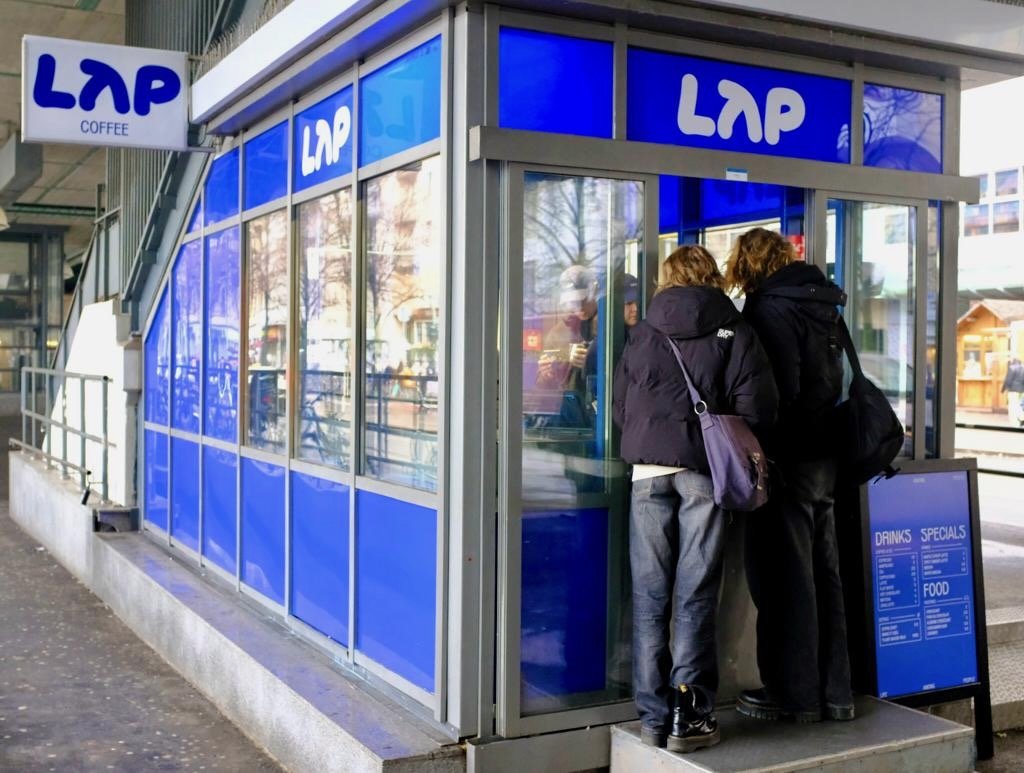
LAP micro-retail spaces are compact, with minimal seating. Branding is a distinctive blue and white. While young professionals characterise LAP customers in their 20s and 30s — mobile, active, lifestyle-focused, the pricing attracts construction workers, police officers, all kinds of people looking to grab a coffee.
When you dig into LAP, you see a circularity of tactical decision-making that benefits other aspects of the business.
According to Hage, supply chain challenges are significant for coffee shops and cafés in Germany. "In the US, companies like Odeko manage logistics for cafés:
"Everything from beans to cups to cleaning supplies, ordered from one dashboard. That doesn't exist here. Most independent cafés waste time chasing 20 suppliers instead of focusing on customers."
Then there's real estate: big prime locations aren't profitable. And most menus contain too many SKUs. He explained:
"We simplified operations, centralised prep, automated processes, and chose smaller locations. That allows us to deliver quality at affordable prices."
According to Hage, the company began with the assumption that high prices are no longer effective.
"People are making less money, inflation is up, and the masses have less disposable income. If you build a €5 cappuccino business, you're targeting a tiny slice of the market.
Instead, we aim for volume — everyday consumption at affordable prices. That's why we can survive alongside speciality cafés charging double "
One of the main criticisms of LAP is that it's seen as at risk of replacing independent cafés. For example, Philipp Reichel, who runs Isla Coffee in Neukölln, told German media RBB:
"I think that LAP Coffee will become more and more present in the next few years and will displace many stores."
However, Hage counteracts:
"By driving traffic into neighbourhoods, we also help other cafés on the street. Since we opened on Rosenthaler Platz, three other coffee shops opened on the same street — all doing well, including us. In Südkreuz, more cafés have opened nearby, too.
Why? Because we drive traffic. The latte economy we create helps the whole neighbourhood."
In an interview with the migrant-focused magazine Berliner, Hage pointed out that "in a city with thousands of cafés — 2,270 in Berlin compared with 1,200 Spätis — LAP's shops account for only 0.5 per cent of the market."
But it hasn't stopped the ire of its detractors.
The stores are criticised on Google Maps, received aforementioned negative press, and dedicated anti-LAP social media campaigns dig into everything from investors backing dual defence to the lack of seating while another journalist slated a social media video featuring people visiting the Kreuzberg Kotti Fotoautomat because "it is typically occupied by people struggling with active addictions looking for a concealed spot to use drugs."
Hage admits he was shocked by the journalistic backlash to LAP.
"Articles were written without ever contacting the company, and he reveals, "And these weren't just false stories — they had repercussions.
Our stores were vandalised, our people attacked. I'm from the Middle East, born during war, so I know what rough looks like.
But seeing a teammate crying in a corner because of this? That's not normal."
Few new coffee giants emerge, which is exactly why investors want LAP
LAP Coffee has had two rounds of funding: initially from Roundtable, Origins Fund, HV Capital, FoodLabs, and more recently, New York's Insight Partners — this was, of course, also criticised by its detractors.
But LAP is no cash cow; the early days were brutal, admits Hage.
"I burned through my own cash, ran out personally. German banks don't lend to small businesses. So, I turned to my entrepreneurial friends and people back home. It was more of a community fundraiser.
FoodLabs supported us with a convertible. Later, a family office joined the team, followed by additional investors once we achieved product-market fit. We never planned to be a "VC story."
We didn't even announce rounds. Deutsche Startups just dug through registers and turned it into a VC story."
According to Hage, when it came to VC money, Germany's thirst for coffee, and the economics of LAP appealed from its microstores to digitisation and automation.
"We provide smaller, affordable spaces with a focus on product. Once you scale many of those, you have a large customer base.
Then you can diversify: put special drinks in cans, sell them in supermarkets. That scalability is what attracts investors."
Hage's background in the food and beverage industry has given him a strong network within the sector, but he acknowledges the difficulty of breaking into an established consumer category.
"When was the last time you saw a new competitor to Red Bull or Coca-Cola?" he asks.
"Or a new global coffee brand? Maybe Blank Street in the US or Luckin in China — but there are very few."
And that scarcity, he notes, is precisely what draws investor interest. (Author's note: speaking of Cola, I've been watching Gaza Drinks make a splash at home in Melbourne with interest — and now Germany is home to Palestine Cola. )
Why automation lets LAP pay baristas more, not less
What about the tech behind LAP? Well, LAP's coffee-making configuration is something that– you guessed it … really upsets its detractors.
LAP also distinguishes itself by paying staff fully on the books — a rarity in a sector where it's common for employees to be partly off the record and paid cash in hand, and it's all down to its digitisation, automation and other efficiencies that make it possible to offer baristas higher wages without inflating staff numbers.
Hage explained:
"We designed equipment with Eversys and Ubermilk. Machines automate grinding, tamping, and milk frothing. That ensures consistency, reduces waste, and saves barista time. Multiply that across 150 drinks, and you save hours of paid labour."
"Our baristas earn above market, plus sales-based bonuses. In busy stores, they can make up to €17 an hour. Even in the worst case, it's higher than the average.
We also give extra holidays, benefits, and training. Some baristas have grown into area managers. For us, barista work isn't a side job — it's a profession."
The LAP model has the potential to be applied to other product categories, such as ice cream, burritos, and bagels. Hage contends that "any high-frequency consumer product: ice cream, burritos, bagels, is possible."
When coffee meets culture: inside LAP's social playbook
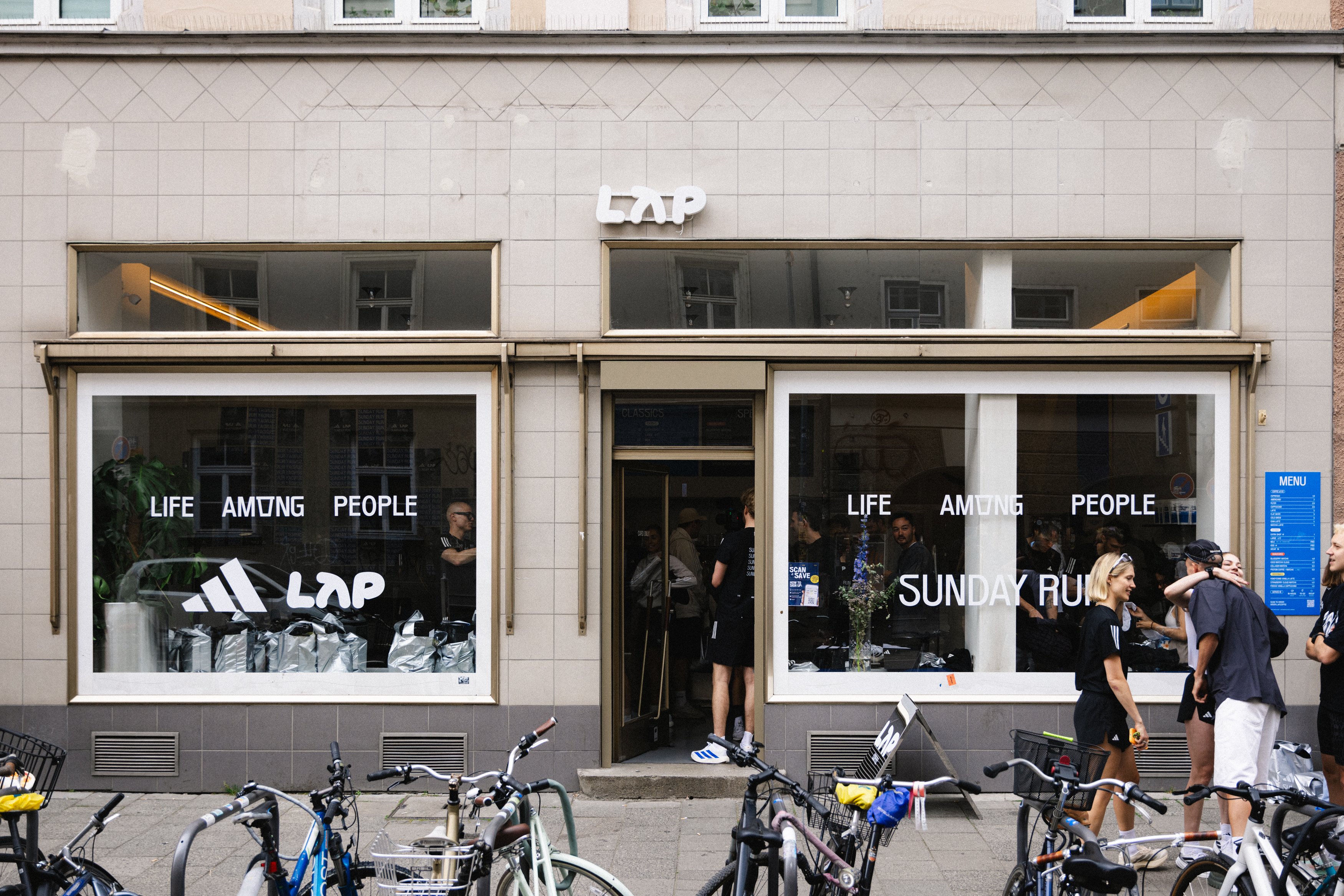
One thing that most interests me about LAP is its successful community building. From the beginning, LAP was all about community, admits Hage.
"We even designed our first deck like an Apple keynote — the brand story was personal, from the Mediterranean blue colour to being an immigrant building a community."
LAP turns the idea of Ray Oldenburg's third place coffee shops on its head by creating virtual-physical community fueled by a vibrant presence on social media with 27k followers and counting, and partnerships with brands and influencers in sports, music, and fashion. Think Sol de Janeiro, Highsnobiety, Bumble, Adidas, On Running, and Lululemon.
It hosts running clubs, impromptu DJ sessions, pop-up vintage markets, and 'Bring Your Dog' parties. Kanye West turned up at its first store opening block party.
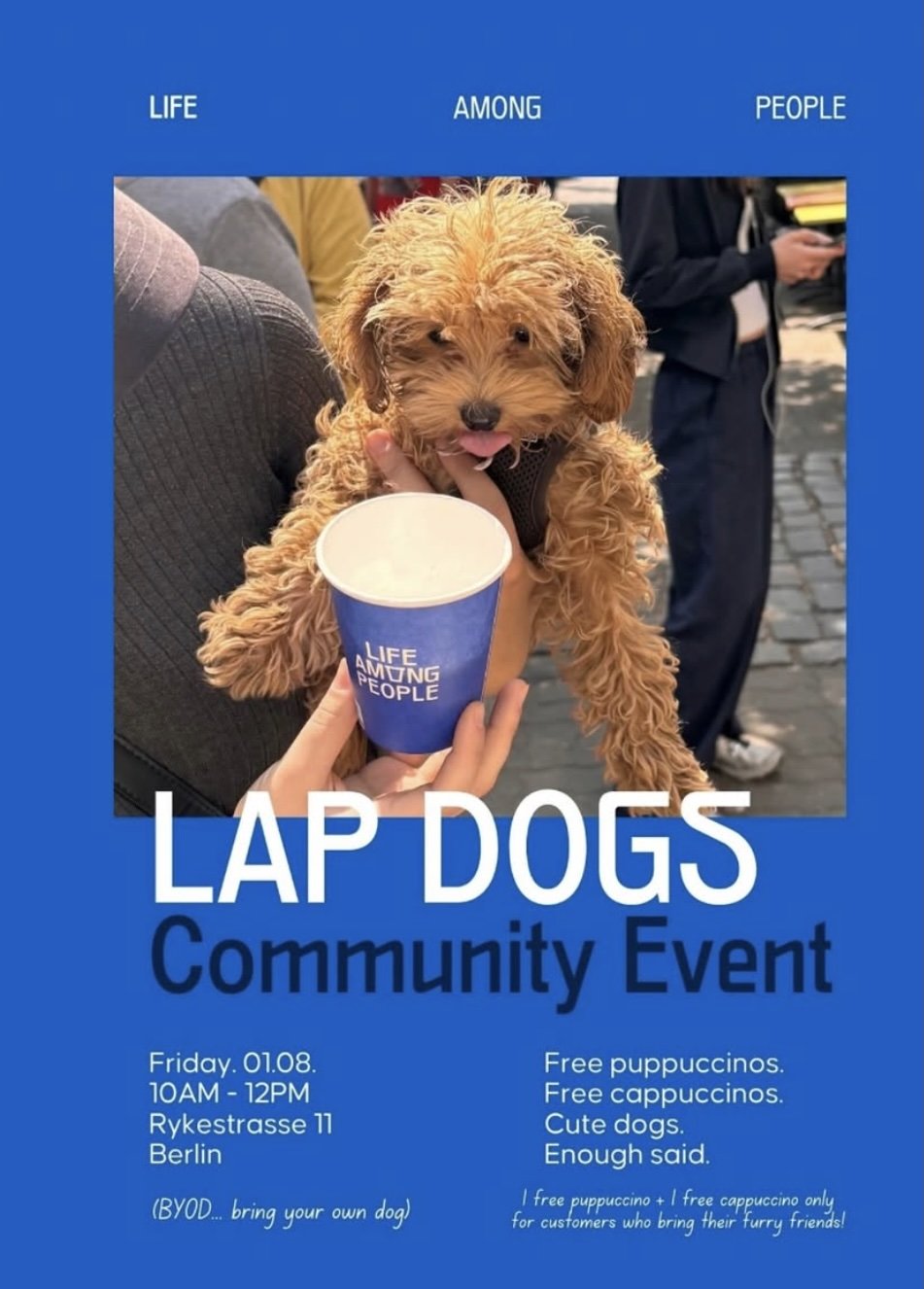
To be clear, the microstores are not coffee shops to linger on couches or conduct Zoom calls — laptops are banned at almost every coffee shop in Berlin anyway — but more of a quick-stop or a meeting place to get things started.
Hage contends:
"Community isn't about square meters. It's about moments. We've hosted free music festivals, parties, brand collaborations, and run clubs.
Customers who come for a coffee on a Tuesday will come back for those events. Community is the ability to send one message — "come to our event" — and people show up because they feel connected."
It's a trend that local Berlin entrepreneurs are further embracing with a new wave of tricked-out spätis, like SUPERSPÄTI, which has a dedicated TikTok page and offers stand-up comedy shows and live MCs, while Gen-Z-founded SPÄTI BOOTH shows a changing of the guard. It makes sense as more and more nightclubs are closing due to the changing interests of younger generations who drink less alcohol.
So what's next for LAP? Digitisation and loyalty
Hage contends that its current stamp card program works, "but we want to evolve it through tiers, baskets, and app integration. Technology — both back-of-house and customer-facing — will be crucial for scaling. That's one of my main projects, once I find more time away from current distractions."
Ultimately, the backlash against LAP highlights Berliners' uneasy relationship with change. As Hage puts it:
"At the end of the day, we're just making coffee more innovative and more fun. Turning that into a critical story is ridiculous."
But I, for one, will be looking forward to my next coffee.

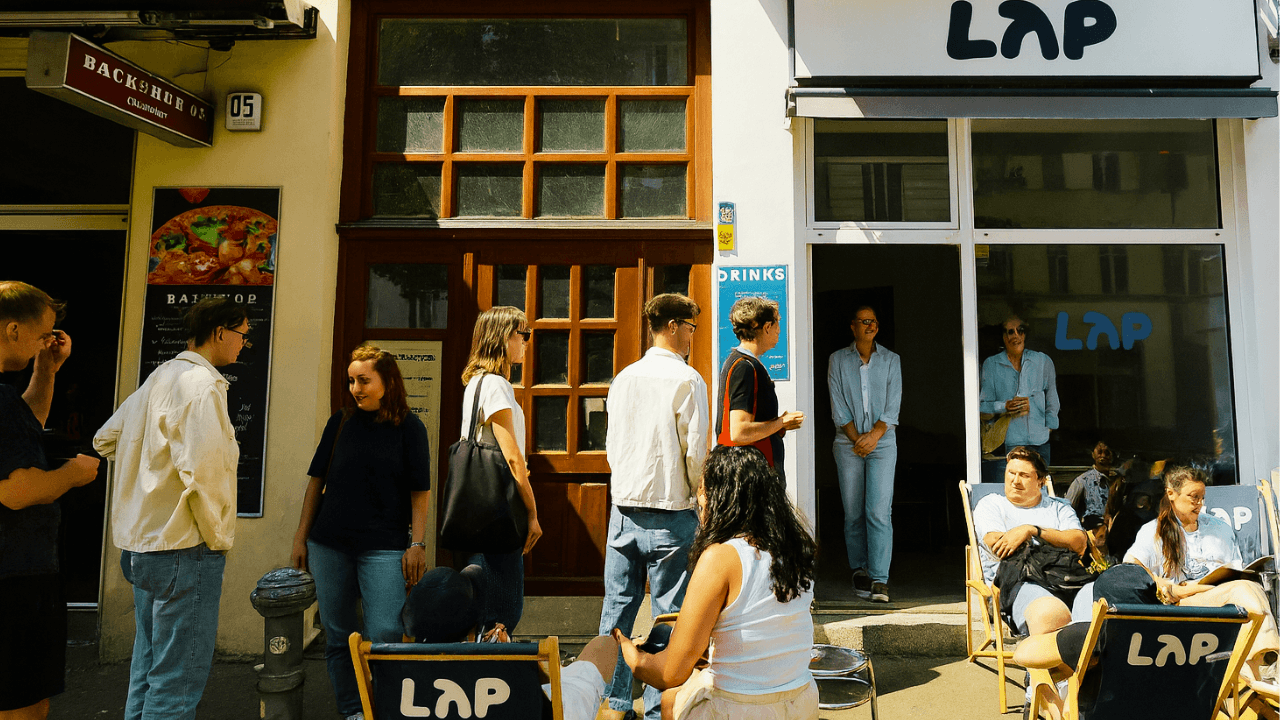

Would you like to write the first comment?
Login to post comments